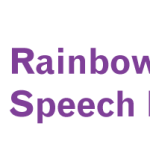WHAT IS GESTALT LANGUAGE AQUISITION?
 The word ‘gestalt’ is German in origin and refers to processing information in chunks. In language, this may be a whole phrase such as ‘all aboard’ and ‘let’s go on an adventure!’. This is a form of echolalia. Echolalia refers to the repetition of utterances said by others. It can be immediate (i.e., repeating a question straight back to you) or delayed (i.e., scripting lines from favourite movies and TV shows). Echolalia is common among those with Autism Spectrum Disorder.
The word ‘gestalt’ is German in origin and refers to processing information in chunks. In language, this may be a whole phrase such as ‘all aboard’ and ‘let’s go on an adventure!’. This is a form of echolalia. Echolalia refers to the repetition of utterances said by others. It can be immediate (i.e., repeating a question straight back to you) or delayed (i.e., scripting lines from favourite movies and TV shows). Echolalia is common among those with Autism Spectrum Disorder.
Gestalt Language Acquisition (GLA) refers to a form of language development where one progresses from using multi-word, echolalic communication to the use of novel or independently constructed utterances. This differs from Analytic Language Acquisition where one learns to combine single words into phrases and sentences (i.e., roll + ball).
Children who learn language through a Gestalt approach acquire language in stages. These stages are as follows:
- Echolalia: Use of whole scripts, songs, episodes to communicate
- Mitigation: Use of partial scripts and/or mix/match combinations
- Isolation words and recombining: Using single words and beginning to combine these into 1 – 2 word combinations
- Generation: Use of original and novel phrases and eventually sentences that are contextually appropriate.
What can I do to support a Gestalt Language Learner?
- Acknowledge what they are saying and respond. Their communication is meaningful! This is their way of participating in the conversation, so it is important that you reciprocate this!
- Play detective and try to hypothesise the meaning behind the child’s use of the script (i.e., are they trying to convey that they want something, could they be commenting on something)
- Continue to narrate your day – this is all language modelling and super important for someone who learns through GLA
- Be mindful of your use of complex sentences
- Minimise your use of questions
- Use first person, and try to avoid using the word ‘you’
As outlined in a number of blogs on the Rainbow Speech Pathology page, Speech Pathologists are here to help with all things communication and that includes language! If you suspect your child may be having difficulties learning and using new language, please reach out to a Speech Pathologist for an assessment.
Written by Rachel Finney – Speech Pathologist


